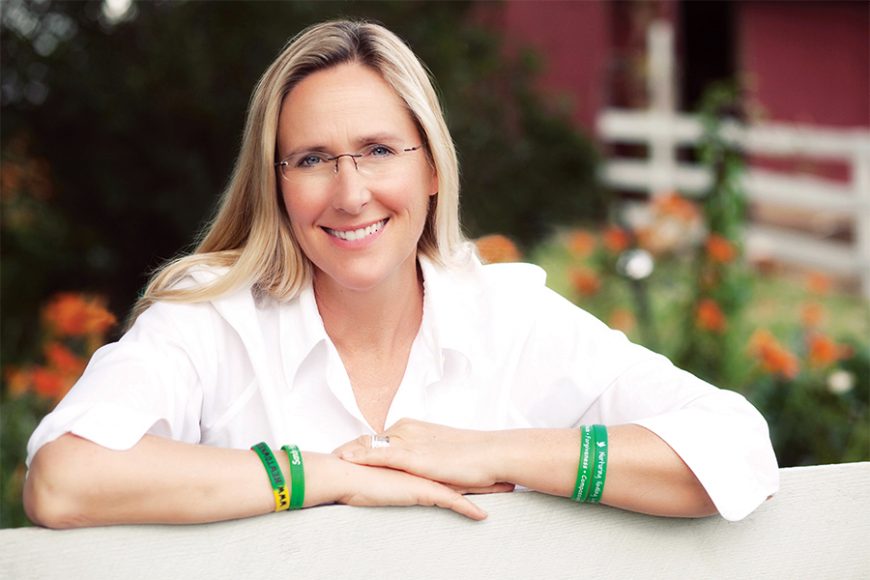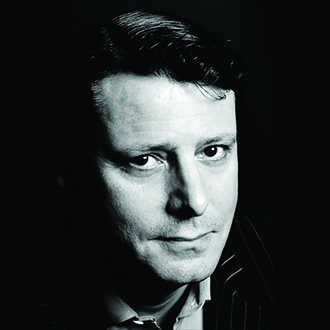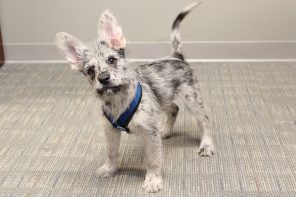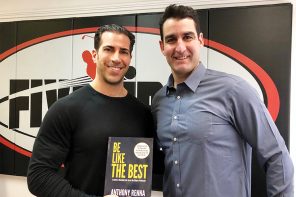If I have been expecting a smart little farmhouse with tasteful stenciling on the walls, Marimekko fabric on the rustic-chic chairs, scented candles on the coffee table and one of those clever imitation fires glowing warmly in the grate, I am in for a surprise.
And yet, as I swing off a pleasant, if unremarkable, country lane in Newtown and turn into an entrance, trusting yet again a GPS system that invariably lets me down at every conceivable opportunity, I know instinctively on this occasion that I am in the right place. I know before two huge hounds approach my car with barely feigned uninterest; before I even spy the “Choose Love” sign on the barn door and venture down the muddy path, through a “garden” run to seed with weeds and jumble, and a cast-out bathtub in which nobody is ever likely to bathe again; before I reach the front door, that this is the house.
Then the door opens and for the first time I meet Scarlett Lewis, the sunny mother of two, whose younger son, 6-year-old Jesse, was murdered, along with 19 other children and six adult staff on Dec. 14, 2012, at Sandy Hook Elementary School.
I am here to learn about the Jesse Lewis Choose Love Movement, a nonprofit organization Scarlett started after the tragedy.
You don’t need to break ice with Scarlett, because she wades right in.
“When you lose a child, it’s like losing an appendage,” she says. Her voice is measured and calm, like a teacher bringing me up to speed. “It’s a part of you, so when that child dies, I imagine it’s like when you lose an arm or a leg.”
And she explains about the phenomenon of phantom pain. “So, the pain is always there, but you just learn to live with it and even mobilize it into action, which is what I’ve tried to do.”
She has mobilized it all right. Through her foundation’s Choose Love program, educators and their students have learned how to choose love in any circumstances, and become connected, resilient and empowered individuals. In just four years, the program has reached more than 1.5 million children in all 50 states and is now in 90 countries worldwide.
“What happened to Jesse was 100% preventable, and I knew that right away, intuitively. We all know that. And we know what to do. It’s just cultivating the courage within us to do it.”
What were the first steps, I wonder? “Well it’s a choice, for sure, and when you have some skills and tools to start with, which I did, it helps.” Following in her father’s footsteps, Scarlett started her working life in merchant banking and municipal bond arbitrage, and speaking at meetings in small towns to a sometimes wary or fractious audience was great training. There were mental tools, too, equally important.
“I practiced being present with my family, to the point where we didn’t have a TV, we read every night together, we played board games around a table, looked at each other and talked. And I think that is the key to living your life with the fewest regrets, being present with your family and the ones you love.”
Skills honed early have served her well. “I remember even at the firehouse ‘being present,’ when we were waiting to see what was going to happen with our kids. And that enabled me to be aware of the fact that my elder son, who was 12 years old and in lockdown in Newtown Middle School, in seventh grade — who texted me while I was waiting and asked If he could come and wait with me — that everything that I did was going to shape how he moved ahead in his life and how he handled difficulty, even tragedy, going forward. And I wanted to model for him what strength looked like.”
This mother knows everything about strength, everything about courage.
“And then after a few days, I came back to this house and I saw this,” Scarlett stands up and motions me to follow her. “It’s just right around the corner, and this is what directed me in my efforts — Jesse’s message of nurturing.” There, on a blackboard, now preserved behind acrylic, are three words which Jesse had written just days — a day, perhaps? — before he died. “Nurturing, healing, love” — three exceptionally powerful words given added poignancy by Jesse’s childlike misspellings. “It stopped me in my tracks and I knew immediately that if the shooter had been able to give and receive nurturing, healing love, the tragedy would never have happened.”
So where did they come from, Jesse’s words?
“People have asked me that for seven years. It’s not something a 6-year-old would normally say. They even asked me if I walked around saying those words, but that did not come out of my mouth.”
We head back to the living room. No surface is uncovered, no wall space bare. It is two days after Christmas and the Christmas tree is glowing, weighed down with bells and baubles. Garlands crisscross the room and link the pictures while model Santas and Christmas ornaments fight for space.
“That message was left for me,” Scarlett says. “I believe that was a spiritual awareness, which he had. That, not consciously, but spiritually, he knew that he didn’t have much time left, and he wanted to leave a message of comfort for his friends and family, but also as an inspiration for the world. And I knew I’d spread that message.”
(Jesse, it transpired, after just seeing his teacher shot, had urged other children to flee while the gunman took time to reload, thus saving many lives.) “When I heard he used his last few seconds on earth to try to save his friends, I was not surprised,” Scarlett said in an interview at the time.
She says the message has been her guiding light, “a gift,” and she has shaped her entire foundation around those three words. “Love is what we’re all born with and it’s what life sometimes beats out of us through lessons and experiences.” She quotes the well-known adage: “Hurt people hurt people,” she says. “Forty-nine percent of our youth will have had some kind of mental illness by the time they reach 18.”
So, what, I ask her, is the antidote. “The opposite of anxiety is doing something.”
She spends around three-quarters of her time traveling, across America and the world, showing schools and communities how they can Choose Love. The program is also proactive in cultivating a culture of safety in our schools, homes and communities.
The stories and successes are legion and soul-stirring. Students in fifth through eighth grade at the Little Red School in Nogales, Arizona, have painted the front of their school with the Choose Love logo. Scarlett herself is just back from Bentonville, Arkansas, where they had already launched Choose Love. The mayor issued a proclamation, a choir performed, there was a procession of firetrucks and a marching band. Schools across the country are merging the Choose Love logo with their own school logos. In the Cheshire Correctional Institution in New Haven, where “lifers” are teaching the program to young inmates, prisoners collected $1,000 from their commissary accounts (no mean achievement when you have only a few cents a day to spare) to present to Scarlett to further the foundation’s work.
“Choosing love,” says Scarlett, “is a way to take back our control.” But I want to know how ordinary people or, perhaps more important, damaged people, can start to choose love.” “It all starts with courage,” she explains. “Courage is like a muscle — we need to practice using it. It’s not about laying down your life kind of courage but it is about the courage to be kind, to be grateful, to forgive.”
Although a practicing Christian herself, religion plays no designated role in the foundation. The program is nonreligious, nondenominational. Politics does not come into it either. “The issues we see are not political ones. Choosing Love is apolitical,” she says firmly.
As we prepare to say goodbye, Scarlett walks me to the door. Shoes and boots litter a mudroom floor. Clutter reigns. Disorder takes on new meaning in the loving home of this extraordinary woman, this woman with the tidiest of minds.
“I tried to clean up before you came,” she says, reading my thoughts, and I stifle an incredulous laugh as we walk toward my car. I ask if I can give her a hug and she says I can, giving me a warm squeeze back. Could she ever have imagined where life would take her, growing up in Illinois? “I always wanted to be editor of Vogue,” she smiles.
For more, visit jesselewischooselove.org.





